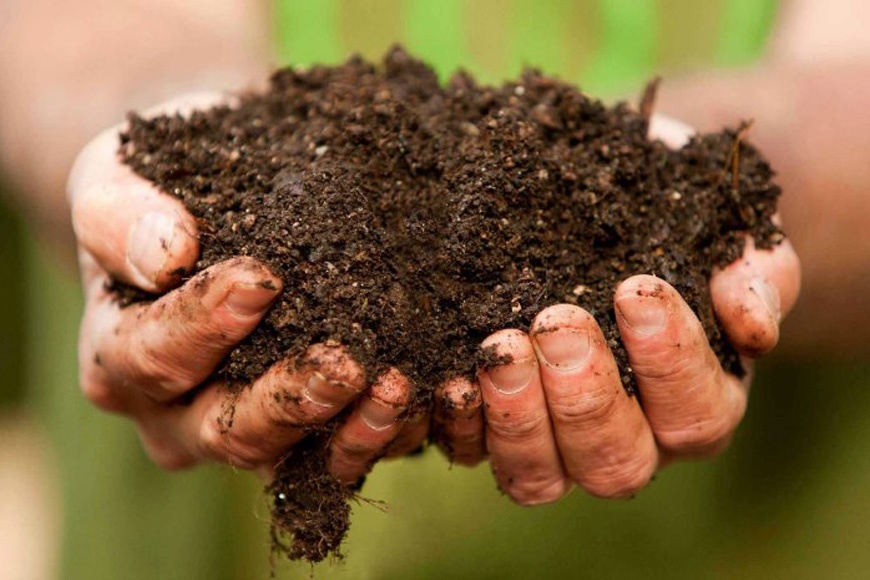
Once decomposed, our biodegradable and compostable bags and products, turn into compost biohumus. The rate of complete decomposition depends on the environment the products are in – moisture, temperature and presence of bacteria and fungi. Composting is a natural process of recycling organic materials, such as leaves and vegetable residues, and is a rich soil repair that gardeners like to call Black Gold. In short, compost is decomposed organic matter. Make a habit of adding compost to the soil every planting season, as it is rich in nutrients and promotes the multiplication of soil microbes that support plant growth.
Compost improves soil in many ways. It helps to loosen the compaction of heavy soils. When mixed with soil, compost acts like a sponge, retaining water where the roots need it most, thereby reducing the amount of irrigation the crop needs. Compost adds nutrients and promotes the growth of beneficial microorganisms, insects and earthworms. It also helps to minimise wind and water erosion, both by retaining moisture in the soil and by promoting healthy root growth. In general, compost contributes significantly to soil health, increasing the chances of plant success. Studies show that compost improves the ability of vegetables to resist common diseases and enhances their taste.
HELPS LANDFILLS
Composting helps keep plant matter out of landfills. It not only prevents landfills from filling up too quickly, but also minimises the pollution they create. Plant substances do not decompose cleanly when placed in landfills: the layers of rubbish covering plant substances create an anaerobic environment. This airless environment causes plant matter to release methane as it decomposes. This powerful greenhouse gas is 21 times more powerful than carbon dioxide. Composting therefore helps to minimise the contribution of landfills to climate change.
MINIMISES THE USE OF CHEMICALS
Spreading compost on arable land minimises the need for chemical fertilisers. Compost not only provides the basic nutrients supplied by chemical fertilisers – nitrogen, potassium and phosphorus – it also provides a wide range of trace elements and other nutrients not available in chemical fertilisers. Using less chemical fertilisers reduces associated environmental issues, including water pollution. The nitrogen in these fertilisers causes algae blooms when it reaches lakes and oceans, radically altering the coastal ecosystem. Chemical fertilisers also leach into groundwater and contaminate drinking-water wells.
WHERE TO FIND COMPOST
You can buy compost in bags, but the best type is homemade. Like homemade soup, the compost is different every time depending on what materials go into it, and there is no single perfect list of ingredients to make a good product. Typical ingredients include fruits and vegetables from your kitchen, old plants from your vegetable garden and leaf and grass cuttings from your yard.
Add BeBio products to your home or industrial compost system, and they will turn into humus! This will help municipal waste collection, reducing plastic pollution at the same time.
Contact us
Fill in the form below and one of our representatives will contact you
